Thursday, September 23rd at 11:00 AM ET
Nulla ut nisl a tellus pretium efficitur
News and Insights
• September 15, 2022
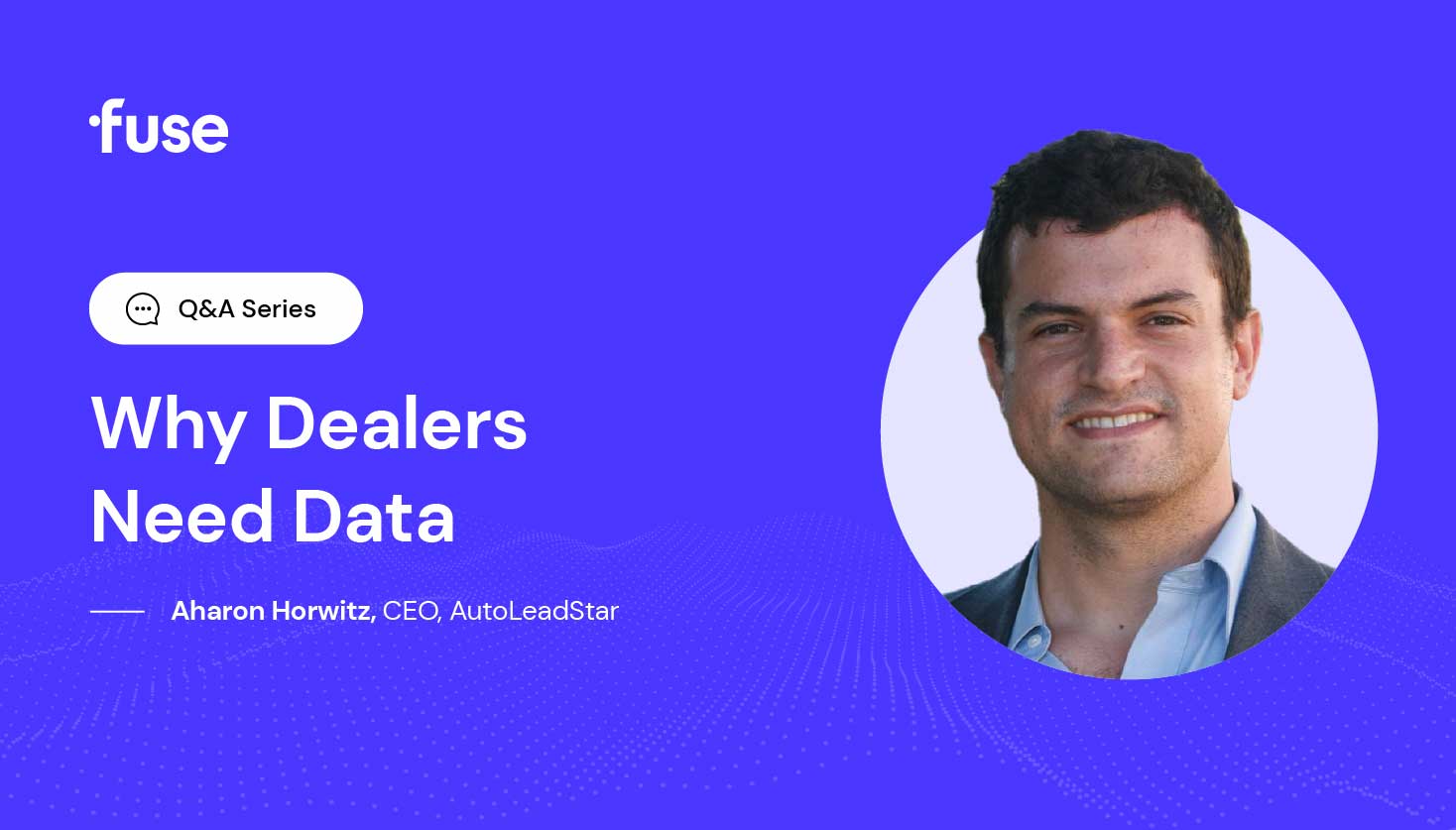
By: Fuse
16 minute read
The secret is out: data drives our digital economy.
While that’s true across all sectors, data is especially valuable in the automotive industry. The dealers who embrace data will be best positioned to thrive in our post-pandemic economy.
According to Aharon Horwitz, CEO of AutoLeadStar, “the smartest dealers are committed to creating a real data strategy. They’re identifying their data, streaming it into one organized platform, and figuring out how to leverage it with their vendors.”
Aharon recently sat down with Fuse, a proud integration partner of AutoLeadStar, to discuss the origins of his company, his emphasis on partnering with data-driven vendors, and how dealers can most effectively leverage data to grow their businesses.
Thanks for sitting down with us today, Aharon.
My pleasure. I turned my phone off, so you have my undivided attention.
Wonderful. Let’s start with your origins: how did AutoLeadStar come into the picture?
We were motivated to start a company that could empower small and medium businesses.
All of us – the founding team at AutoLeadStar – came from an array of communally-minded, socially-conscious careers. While I had been doing venture incubation of social entrepreneurs (both for-profit and not-for-profit), Yishai Goldstein, our CTO, came from a deep tech background and worked at a big company.
Eliav Moshe, our CPO, came from a similar background and was busy operating his own small business.
Over time, the three of us started sharing ideas about how we could empower businesses to compete with the massive companies that routinely swooped in and eliminated sectors wholesale.
The “Walmart effect?”
Right. These monolithic companies would roll into town, and within a decade, they would own practically everything within 150 miles.
As a result, the small, family-owned businesses that employed people and created social mobility were gone.
We wanted to combat that trend, and it became clear that the auto industry provided an ideal starting point. We recognized that dealers had a reasonable level of protection from the monopolizing forces that often preyed on small and medium businesses in other sectors.
We started doing our homework, and we realized that while the auto industry had the resources and community roots to thrive, they lacked the technology needed to supercharge their businesses.
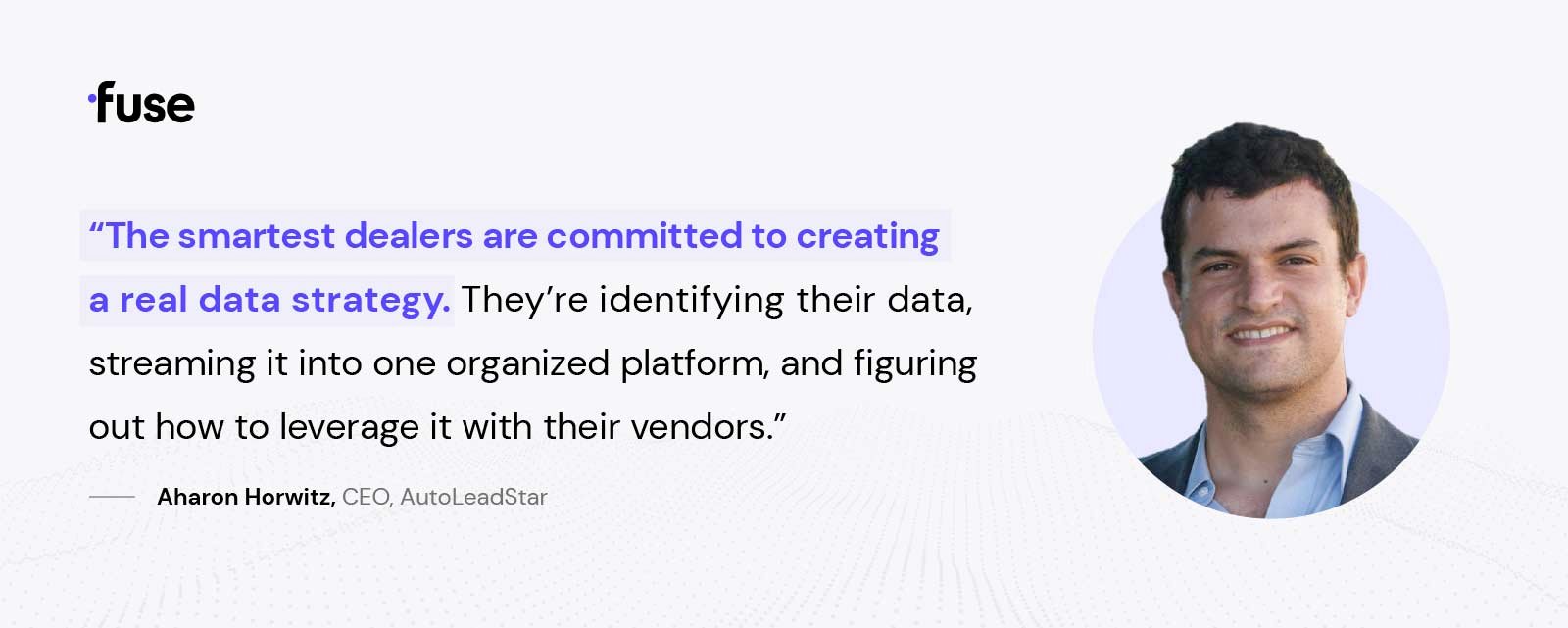
The auto industry is notoriously complex. Even dealer vocabulary is extensive.
How did you catch up to speed and get confident in that universe?
Honestly, we just went to dealerships and started hanging out.
We asked the staff to let us sit in their meetings, to shadow people in the showrooms, and to peek behind the proverbial curtain as much as possible.
At the start of our journey, Eliav, Yishai and I were not car guys, but we were truly impressed by the industry.
How could we not be? The auto industry employs over a million people in the U.S. and generates over $70 billion of payroll per year from franchise dealers alone.
The more time we spent at the dealerships, the more we fell in love with the industry. So we jumped in and started building tech for them.
That’s awesome. Looking back on those initial days as an entrepreneur, what surprised you along the way? Was anything more challenging than you expected?
I’d answer that in two categories.
For starters, the challenges of entrepreneurship are well documented. It can be very difficult to build a business, to find the right people, and to stay focused with countless distractions competing for your attention.
Related Read - Why People (Not Tech) Are Paramount: A Q&A with Candice Crane
Of course, the ability to meet and overcome those challenges has been truly rewarding.
As for the market, I would say dealers are far more sophisticated than they’re perceived.
Though they may not necessarily be as tech savvy as other industries, dealers know how to sell cars. They know what works, they understand the core building blocks of their businesses, and most importantly, they understand the deal.
They’re absolute masters.
Once we realized how effective dealers truly are, we went to school on the auto industry.
Even to this day, we’re still learning from industry pros and veterans.
It’s funny, I remember frantically reading all of Dale Pollak’s books and watching hundreds of YouTube videos teaching how to desk a deal.
And like you said, the terminology took some time to understand. We had to learn a lot of industry specific knowledge in order to help dealers to the fullest extent.
I remember sitting with a dealer who talked about “fixed stops” and “PDR,” having no idea what he meant. So we set about building our own glossaries, and we’d run internal sessions on dealer vocabulary just to keep our technologists up to speed on the lingo.
It was an overwhelming process, but it was also really rewarding.
Before we dive into data, I’d love to hear a bit more about your story. You were born in America, right?
Yes, in Cleveland, Ohio.
I lived in the midwest for a few years but eventually immigrated to Israel and joined the Israeli Defense Force (IDF).
That must’ve been a life changing experience.
It really was. I’m very much attracted to the idea of young people doing a period of service.
I think it’s important to see the realities of life, to be around different people, and to interact with structures and frameworks that differ from those of your upbringing.
That level of exposure certainly gives a young person perspective.
Do you think that’s why tech companies hire people with military backgrounds?
Absolutely. People in the military are pretty comfortable with amorphous, complex situations.
They can cut through the fog of uncertainty and take action in a calculated and confident way.
When I look back on it, I regard the IDF as a profoundly entrepreneurial environment.
I learned early on that responsibility and progression go hand in hand. The more I was assigned, the faster I grew.
That kind of outlook – that ambition and hunger – is huge for any successful entrepreneur.
Speaking of uncertainty, where do you see the automotive industry in the wake of the pandemic?
Dealers enjoyed a windfall over the last few years. Their P&Ls were absolutely astounding, and now, they have serious war chests at their disposal.
But here’s the thing: the auto industry battle is just getting going. Dealers should be thinking about where they can invest their resources, and in my opinion, they need to develop a robust data strategy.
I don’t mean to be dramatic, but the dealers who adapt will thrive, and those that don’t…well, they likely won’t.
You know, there are these old mathematical concepts of the “Joseph effect” and the “Noah effect,” which draw their names from the Old Testament.
With the Joseph effect, the basic premise is that there are cycles of seven years of plenty and seven years of famine.
Or to put it another way, what happened yesterday is probably going to happen again tomorrow. Statistically, any significant change from day-to-day is highly unlikely, right?
But then, there’s the Noah effect, or a catastrophic flood that wipes everything out.
It’s a reset button, a leveler, a literal watershed moment.
Before long, however, the Noah effect subsides and the status quo settles into place. Humans adapt, as we always do, and just like that, we’re back to business as usual.
To answer your question, I think the pandemic was our Noah-level event. And while it certainly threw us into a loop, I think we’ve already achieved some level of a new normal.
Now, dealers have to adapt.
Related Read - Grabbing Market Share During a Market Disruption
What are dealers focused on right now? What are they leveraging to get an advantage?
The smartest dealers are committed to creating a real data strategy.
They’re identifying their data, streaming it into one organized platform, and figuring out how to leverage it with their vendors.
We talk about this a lot with our dealers: whether OEMs try to sell direct, whether EVs totally transform the business model, or whatever disruptive trends come down the pike, data strategy is essential to short and long-term success.
To a lot of people, “data strategy” may sound like a rather scientific term. In actuality, it’s a key component to sound customer service.
When I talk about “data strategy,” I’m describing an end-to-end process of collecting, cleaning, normalizing, consolidating, and organizing data in a way that gives customers an amazing buying experience.
It’s no secret that the Amazons and Ubers of the world have world-class data strategies. And while the mega-corps of the world have robust data infrastructures, so do online shoe sellers and pizza shops.
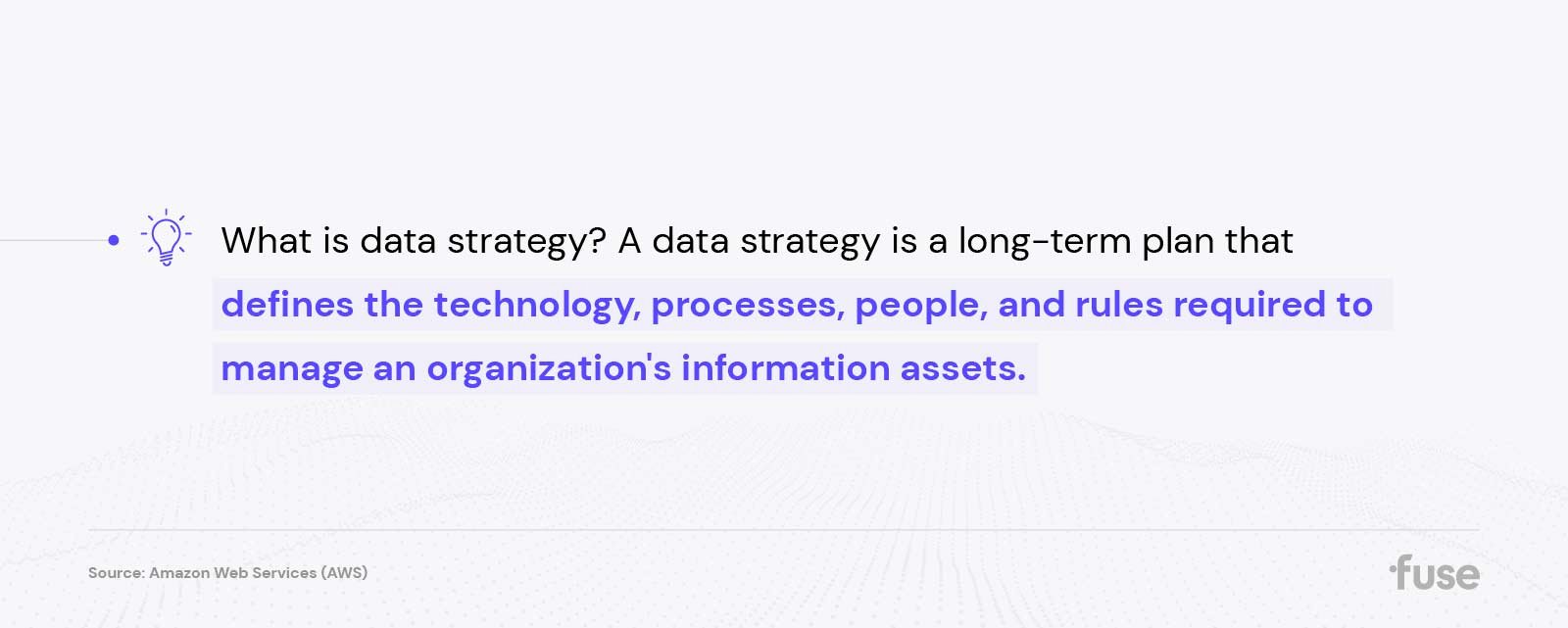
How do you see dealers fitting into the digital marketing ecosystem?
On the one hand, dealers are selling big-ticket items. What used to cost $20,000 or $30,000 is pushing $40,000 and $50,000 these days.
Those are not negligible purchases.
At the same time, dealers are ultimately in a recurring revenue business. If you think about it, a dealer is looking to sell a car once and earn a small amount off that initial sale.
But they’re most interested in building a relationship with the customer that keeps them coming back for other services throughout their lifetime. They may even earn more off of one service appointment than they earned off the initial car sale.
If all goes well, that customer will eventually re-up on the car, shake hands with the dealer, and repeat the cycle.
Ultimately, dealers need to orchestrate a customer journey that’s truly never ending. That process is driven by an effective data play across the digital sphere.
Those that execute it best will consistently win more customers.
Related Read - The History of Automotive Retail and a Guide to the Dealership of the Future
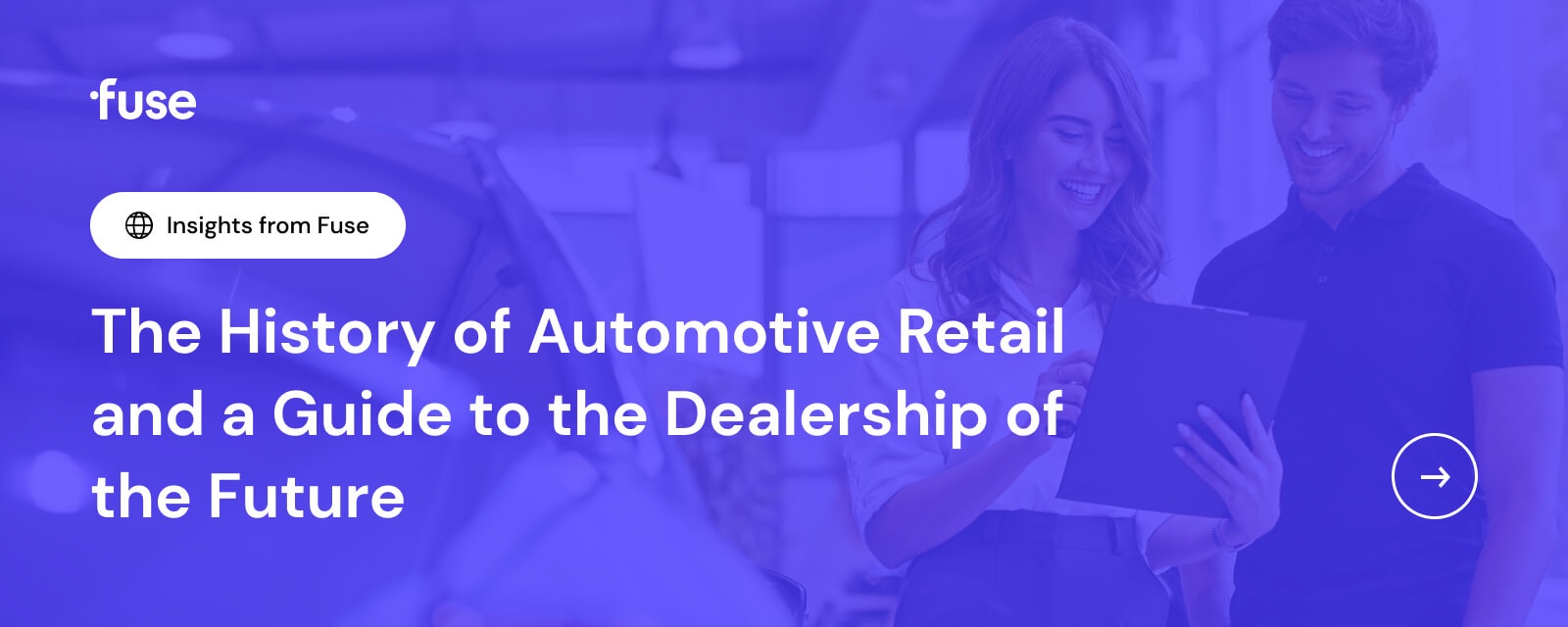
How would you advise dealers who aren’t yet in the data game?
I’d say two things: first, the data dialogue will seem overwhelming at first – kind of like a foreign language.
Once you embrace the fundamentals, you’ll not only be able to see how it can transform your business, but you’ll be able to engage it with confidence.
Secondly, I’d tell interested dealers that there’s a multi-step process to getting started.
That journey starts by figuring out all your data silos and identifying what they are: your CRM, your website, and everything in between.
Then, you need to stream all of that data into one centralized hub. From there, you have to organize it, clean it, and normalize it.
For example, if the table in one CRM from a store says “John_Doe,” and the table in another store says “Doe_John,” we can’t do anything with it. Even if the capitalization isn’t the same, it won’t work.
In other words, we need to create a sense of uniformity across all of your silos, otherwise the data will get jumbled in the backend database.
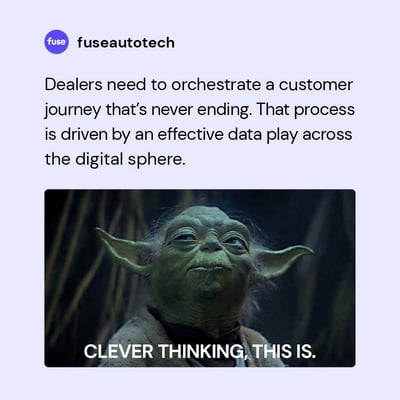
How can dealers leverage that data?
For starters, they need smart vendors and tools that know how to work off their ecosystems.
When we talk about AutoLeadStar, we talk about a customer data and experience platform. We’re focused on aggregating, cleaning, normalizing and storing customer and vehicle data.
Those are all important steps, but ultimately, we’re driven to orchestrate customer experiences off that data.
Our vision is both highly holistic and inclusive.
In other words, we’re actively seeking opportunities to sync up with other vendors who do things we don’t do or who specialize in other areas.
We have one overarching mission: to deliver data in a supremely organized, efficient way.
AutoLeadStar sounds unusually open-minded for a tech company. Can you give an example on how your company views other vendors?
Nobody has a monopoly on good ideas, and we love to see how other vendors use our data to elevate the game, both for dealers and customers.
For example, we have this great chat feature on the AutoLeadStar website.
The AI behind it is state-of-the-art. It not only knows what you’re browsing, but it can show you the right offer and communicate with you at a sophisticated level.
On the backend, I can see what cars you looked at, what specials you clicked on, and more.
And yet, some dealers come on the website and tell us, “Hey, we’d rather have a real person behind the chat.”
As much as I like the AI chat feature, I’m not married to it. If another vendor came along, took my data, and created a more effective way to float it into the chat, I’d give them the green light.
To put it another way, AutoLeadStar’s consumer data and experience platform is built to promote advancement.
We want vendors to raise the bar and innovate.
In listening to you, I’m reminded of the Don Peppers and Martha Rogers book, “The One to One Future.”
Oh, that’s a classic. That really influenced the future of marketing.
With the introduction of AutoLeadStar’s platform, how close are we to delivering one-to-one marketing? And how granular can you get with messaging?
That’s a great question.
In my opinion, the key to those one-to-ones is trust. And it’s a connected story.
At AutoLeadStar, for example, we’re focused on providing dealers with speed, scale, and specificity.
When I talk about speed, I’m talking about your technology’s ability to react quickly to changes.
For example, if a car gets sold, that sale should update across every silo, instantly. If the price changes, it should be reflected everywhere, immediately.
If leads are cheaper on Facebook and they’re converting into sales, you should be able to move money to Facebook right away.
Or, if prices drop on Google an hour later, you should be able to move the money back without delay.
Beyond speed, scale means that you need to work on all the data and you need to work on all the cars, without exception.
You can’t just fixate on one area or be limited to working off one solitary insight. If you are, you’ll miss the full panoramic view of the customer.
That leads us to specificity – the core concept that each customer is a unique person with equally niche needs.
AutoLeadStar’s platforms use the individual as the point of reference, and as such, we will always customize to an individual level.
Related Read - Single Point of Contact: 5 Benefits of SPOC for Dealerships

Can digital technology really achieve a level of personalization?
Absolutely, and I’ll give you an example.
Dealers often see a segment of people in their CRM that we might say are “cold,” or non-buyers. They might have submitted a lead six years ago, but they didn’t end up buying a car.
We’ll name this couple “Sarah and Max.”
The good news is, they’re still in our CRM. From there, we’ll have a series of learnings from our technology customized to engage them (and other non-buyers).
But here’s the catch: when we reach out to Sarah and Max, we’re not going to hit them with a generic sales pitch. No, we’re going to take the specific data we already have on them and craft a reach-out that comes from the data.
After all, we know what cars they looked at in 2016, what they test drove, and what amenities and services they sought.
That information is what will populate in both their emails and website experience.
That’s how you get down to one-to-one marketing in the modern economy.
That’s really –
Actually, hang on, I have a better story on this track. Do you have time to hear it?
Of course.
I’ll tell you the SparkNotes version.
We had been working with this great dealer on the East Coast, and he had a snowplow sitting in the back corner of his lot for a few years.
Despite his team’s best efforts, they couldn’t sell the darn thing – even during really bad winters.
Fast forward a year or so, and the dealer starts working with us at AutoLeadStar, right?
Within a week, the snowplow sold. Just like that.
The dealer calls me up saying, “How’d you do that?!”
I told him, “We worked at scale. We took all your cars and said, ‘Hey, who knows? Maybe somebody out there is looking at snowplows. Let’s get that person.’”
So we set it up, we let the dedicated AI go to work, and we sold it.
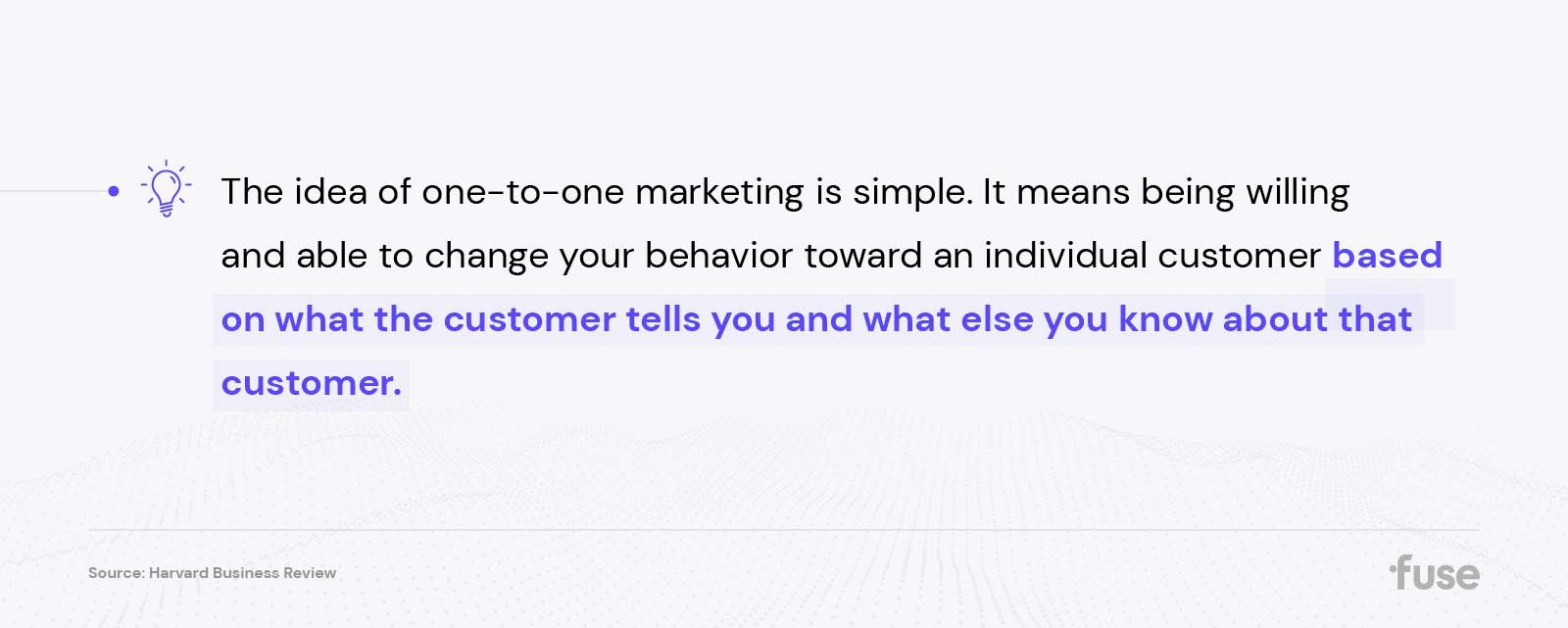
Privacy is a big issue these days, and much has been written about Apple’s change in strategy that may cost Facebook billions. How should dealers view Facebook ads leveraging their audience while considering Apple and iOS privacy issues?
Pre-iOS, most small business owners were making a fortune.
Unfortunately, the recent changes have been quite difficult for business owners, and I’ve seen the effects even amongst my immediate circle of friends.
Frankly, I’d even go so far as to say their businesses have suffered as a result.
At AutoLeadStar, we’ve conducted a number of in-depth studies on Facebook because our CDXP (Customer Data & Experience Platform) performs a range of marketing functions – advertising, email, onsite, and more.
On the advertising side, dealers typically let us invest at what’s called a portfolio level.
There, we can move money between Google and Facebook without any restrictions, because the dealer’s basically saying, “We’re going to get my best leads.”
After the privacy strategy change, a ton of that money went off Facebook. Why? Because it’s very difficult to attribute the sales back to Facebook.
So what we’re seeing lately is if you put in place something like server-to-server tracking, Facebook will release new ways to do attribution. As a result, we’re seeing a lot of value come back and become visible again.
Now, I don’t know if that’s a trend just with us, or if that’s industry-wide (or even market-wide).
But we’re definitely seeing more value these days, and we’re confident dealers should be using their first-party data as much as possible to build their audiences.
They should also prioritize doing the work behind the scenes, which our platform enables them to do automatically.
Conversely, a dealer that’s not using AutoLeadStar would need to manually build in better attribution models with Facebook.
You mentioned your CDXP. Is investing and creating first-party data segments one of the keys for a dealership to face this “cookie-less” future?
Absolutely. We believe the most important infrastructure piece a dealer can put into place is their CDXP.
The reason is simple: dealers need to have a place where all their first-party data is going, where they can effortlessly link between their different silos and leverage omni-channel marketing.
It’s the only way for dealers to ensure they’re seeing the full picture, at both a 30,000-foot perspective and close-up.
Granted, while some of that will become harder with the absence of cookies, it’s still possible.
It just means their CDXP needs to be particularly effective at working within the boundaries of privacy laws, so dealers can have as much opt-in information as the customer willingly reveals.
Before we go, I’d love to get your thoughts on the future of marketing. Do you foresee AutoLeadStar expanding its focus and technology beyond its current scope?
Maybe one day, but we’re not a blue-sky R&D shop. That’s not what AutoLeadStar is about.
We certainly have developed some compelling technology, but our current metric for success is determined by one question: are we helping our customers grow their businesses?
Don’t get me wrong, we’ve shown some of our tools to people in the wider tech world, and they’ve been ecstatic: “Oh my goodness, this is amazing. Why aren’t you implementing X? When can you become Y?”
We love the enthusiasm, but my answer is always the same, “We don’t want to lose focus.”
So we’re aware of the long-term possibilities, but we’re very practical in the application of our technology.
We’re not just interested in cool concepts. We’re interested in how these ideas can help customers in a constructive, practical, and meaningful way.
Over the next few years, we’re most excited to continue transforming the technological ecosystem, and our partnership with Fuse is a perfect example of this.
Together, AutoLeadStar and Fuse have a huge potential to connect via APIs and data levels that will give dealers better platforms that in turn give customers a better experience.
Want to learn more? Request a demo of Fuse today to see dealership data transparency in action.
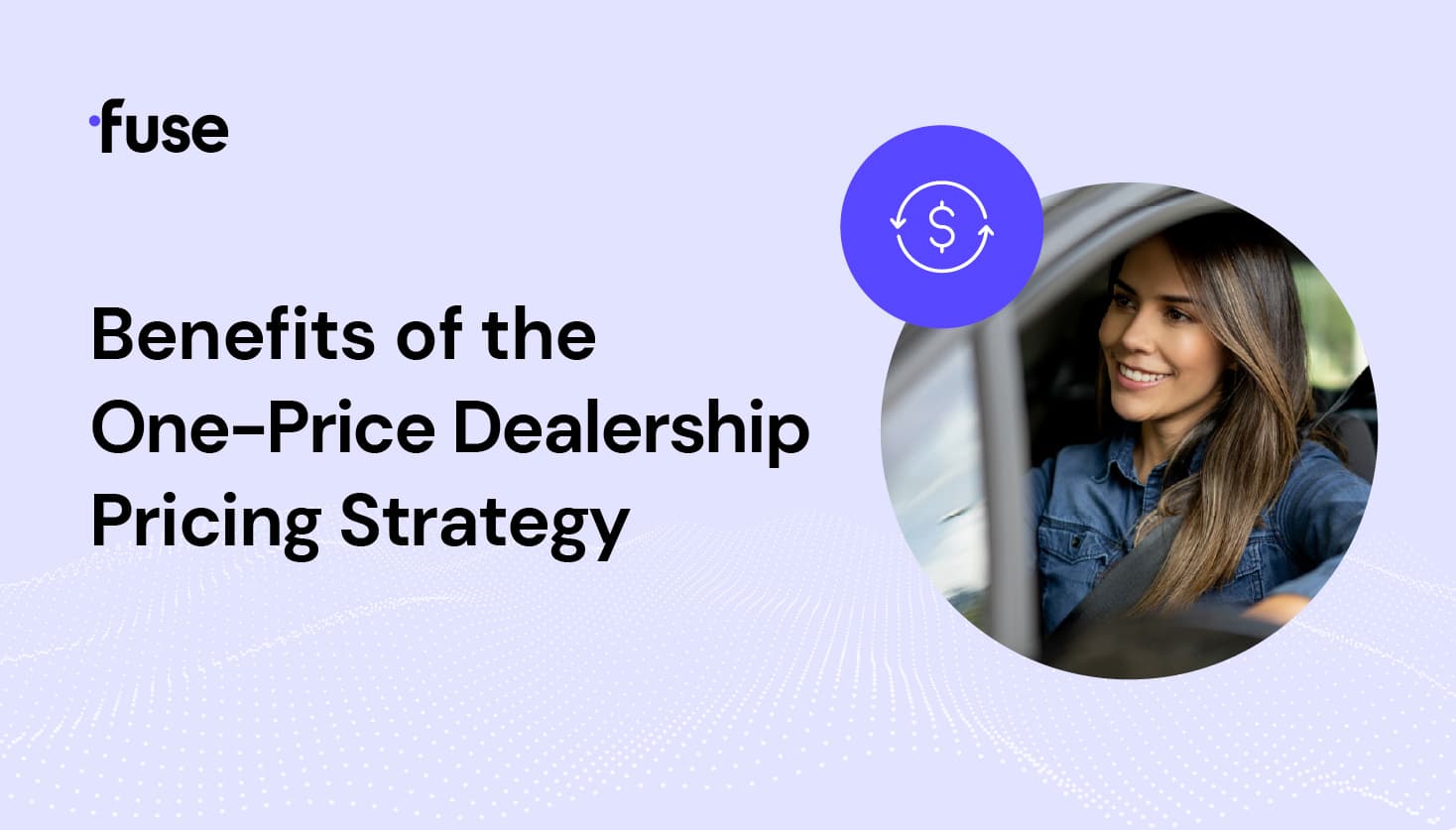
When buying a new vehicle, consumers are often left wondering whether they got the best deal. Today’s car buyers want a streamlined, transparent shopping experience without having to haggle over...
News and Insights
9 min read